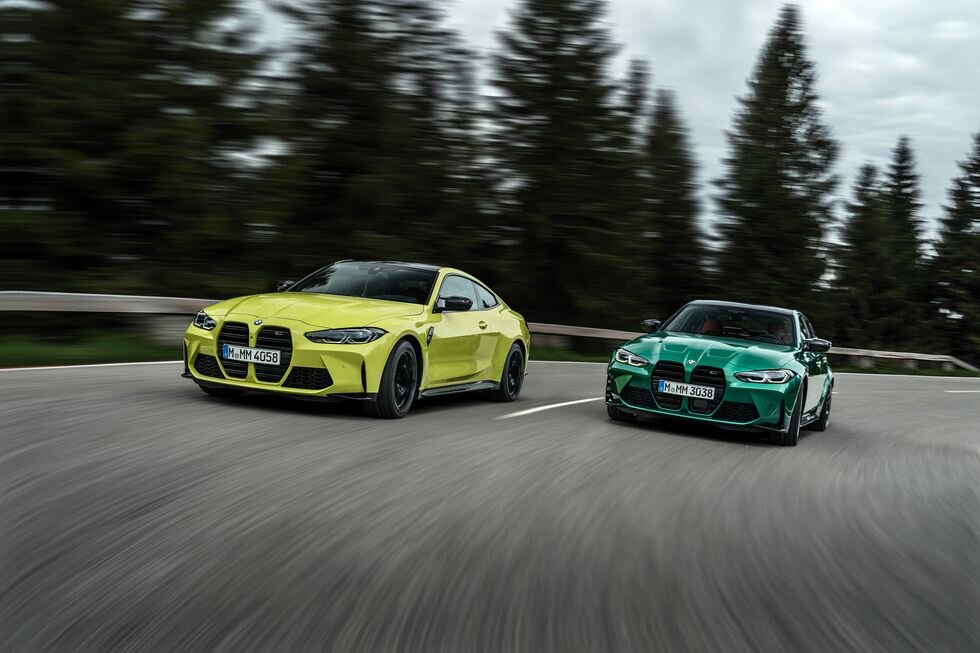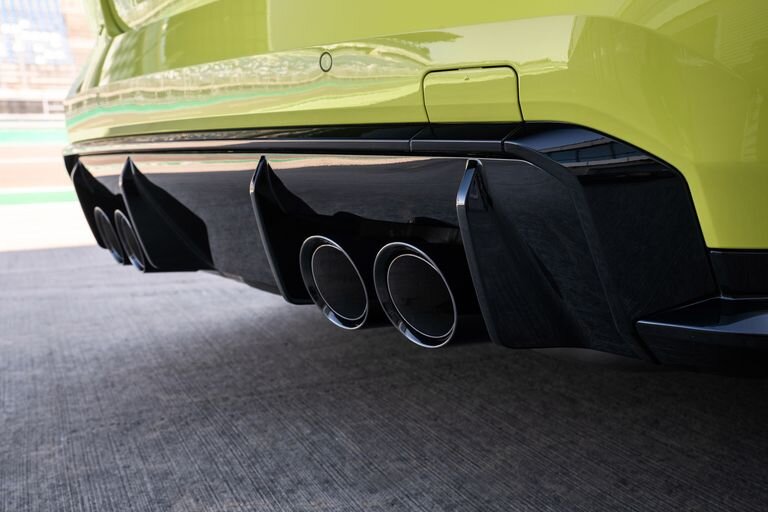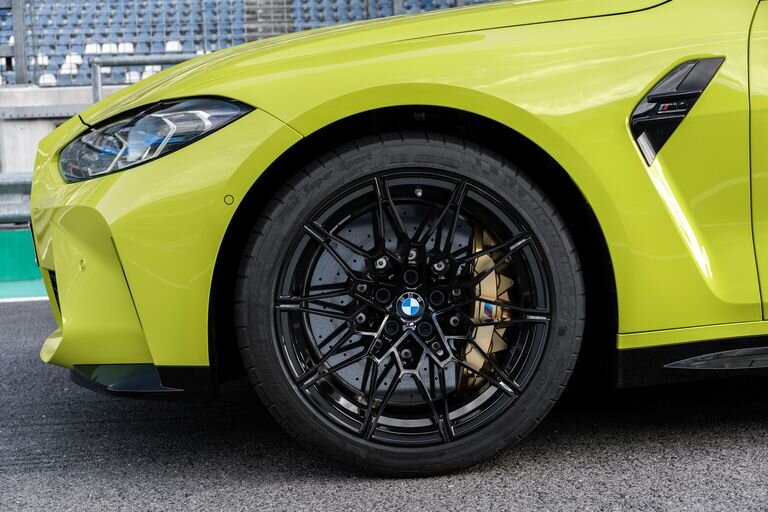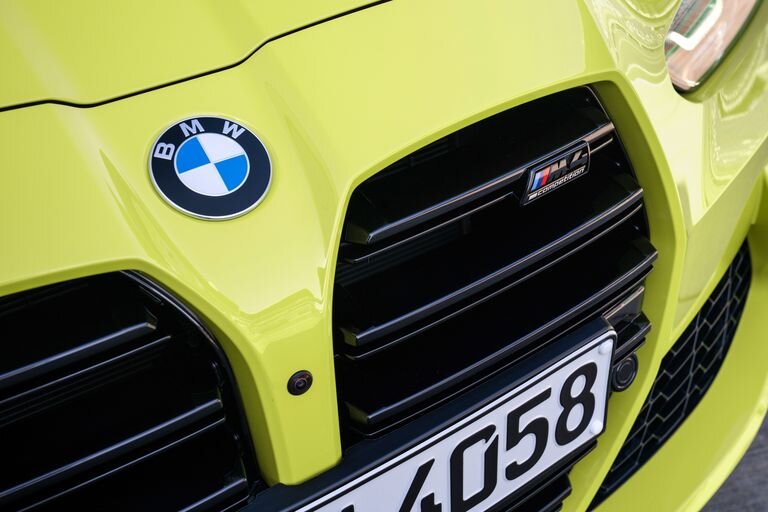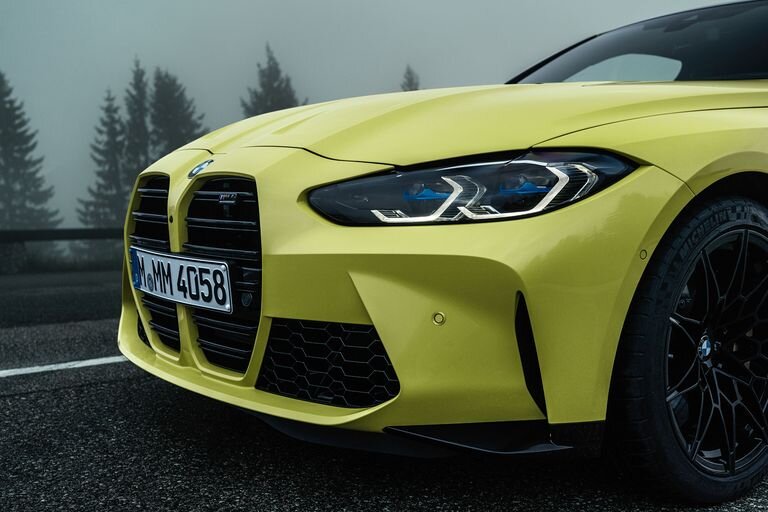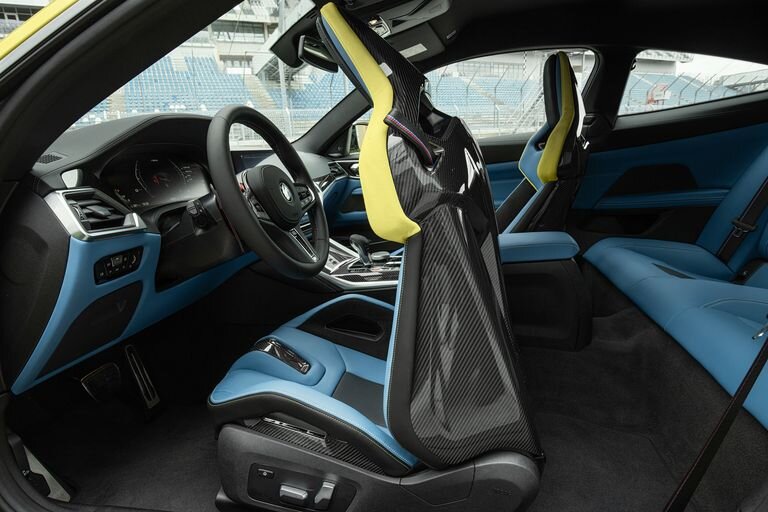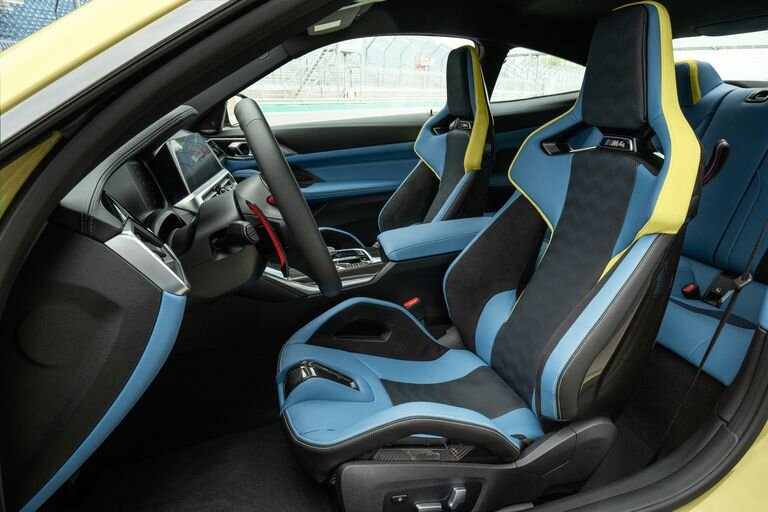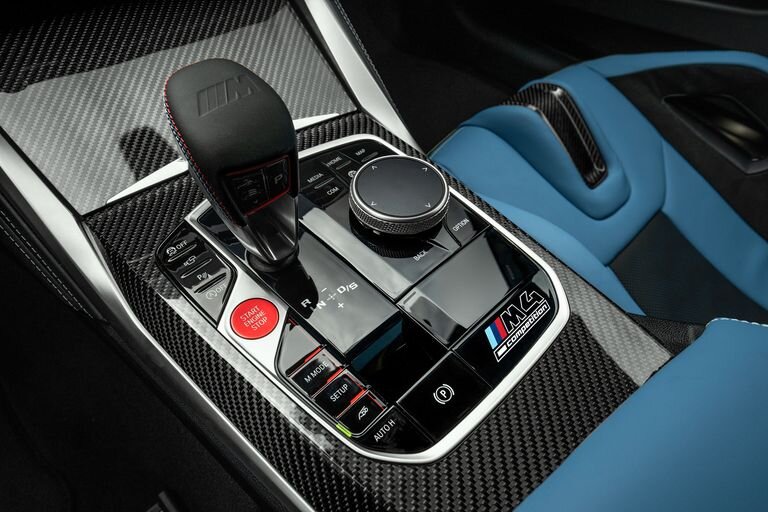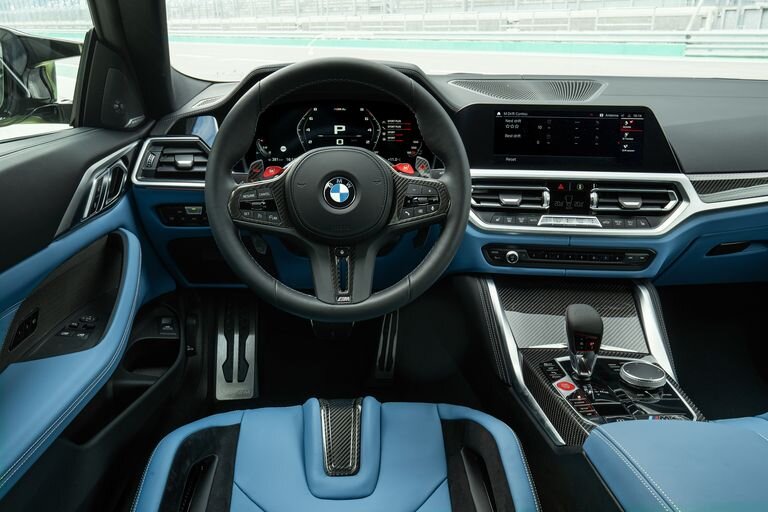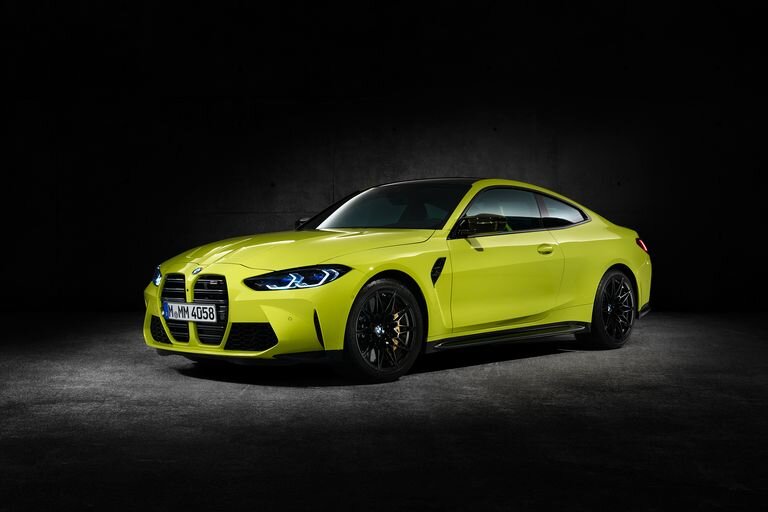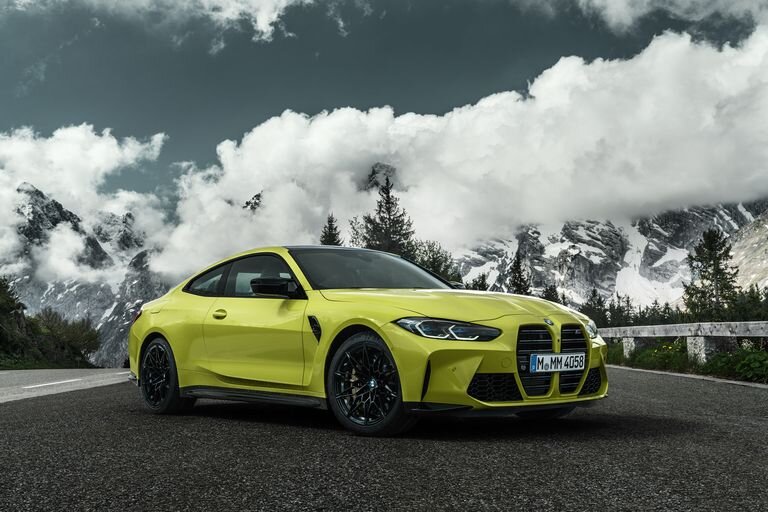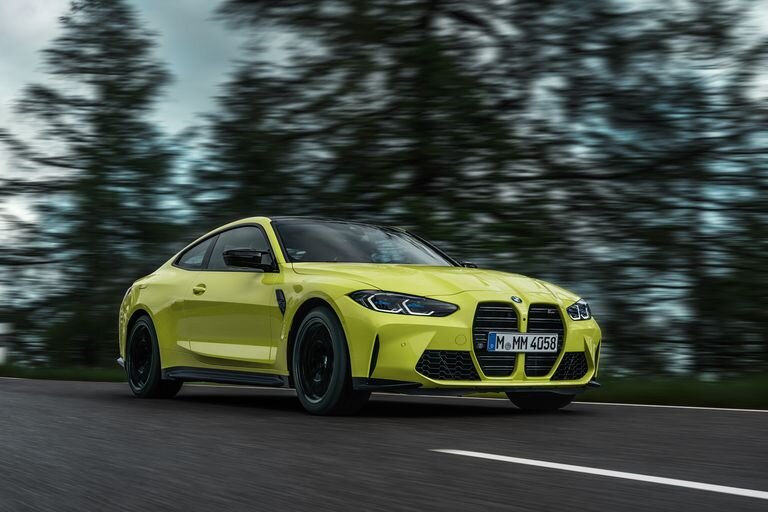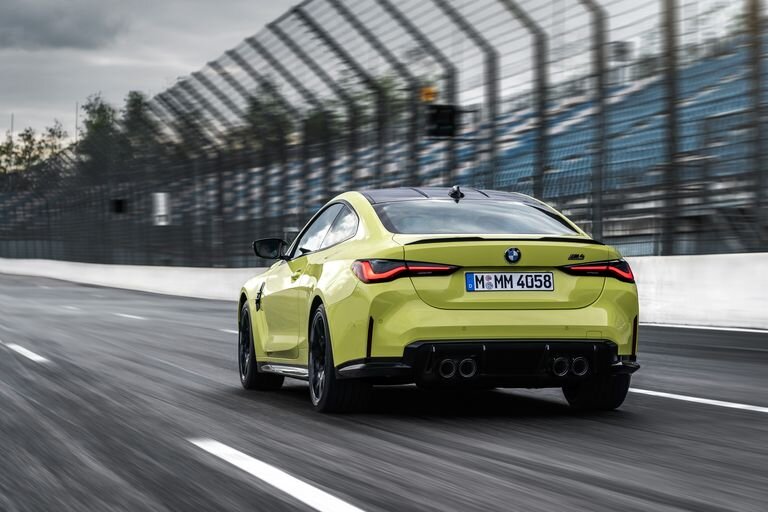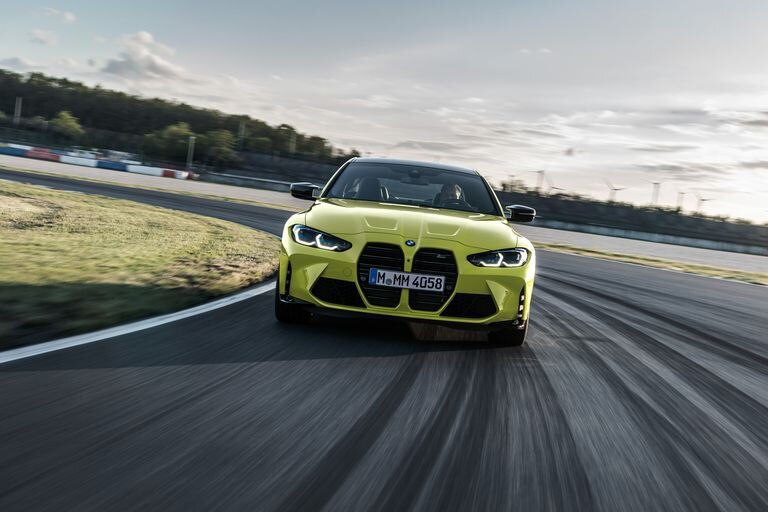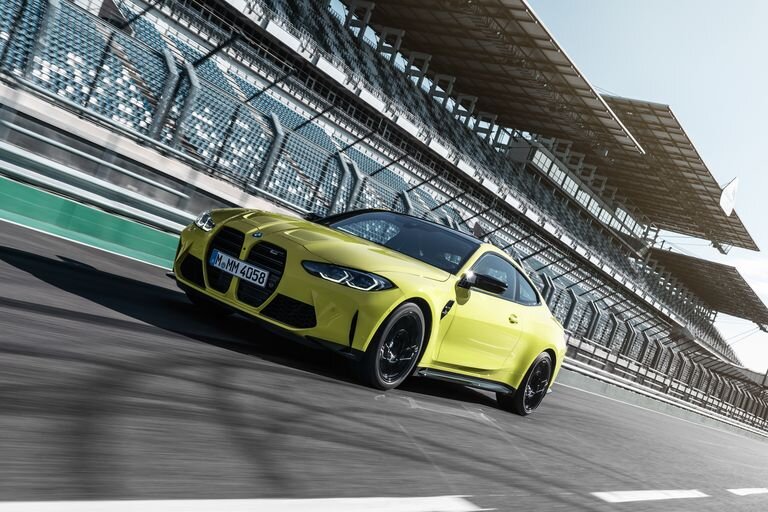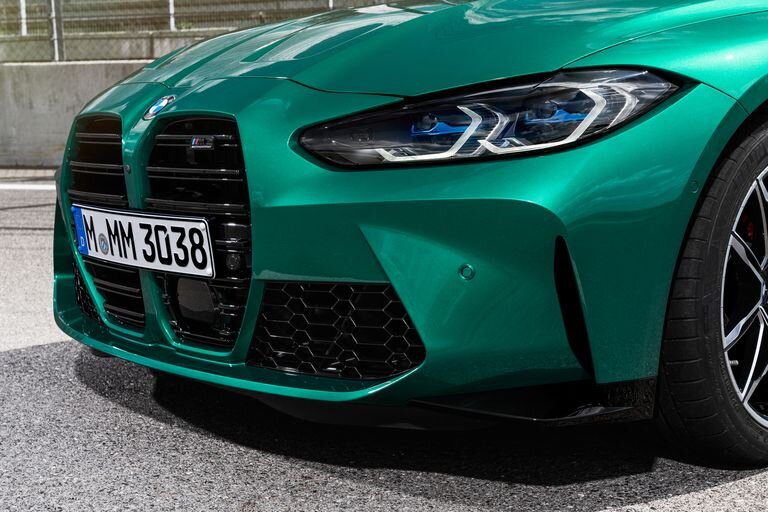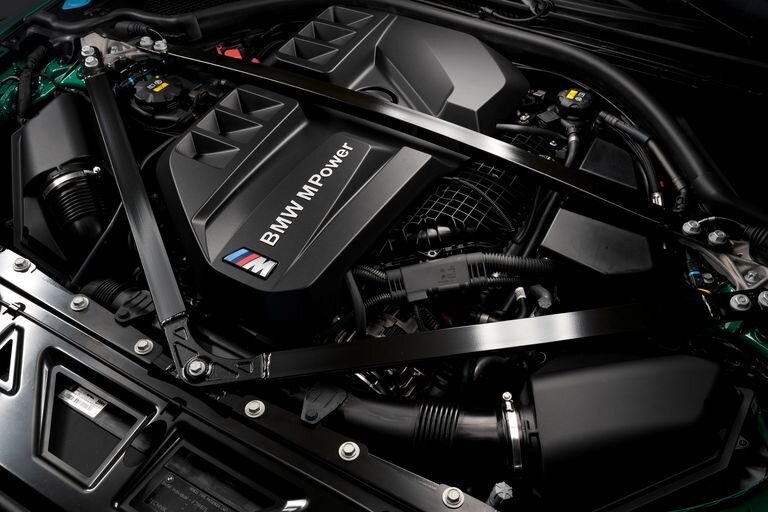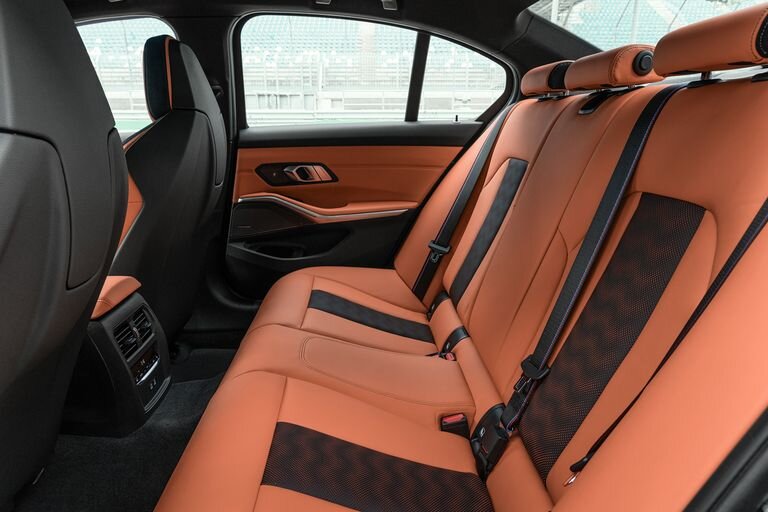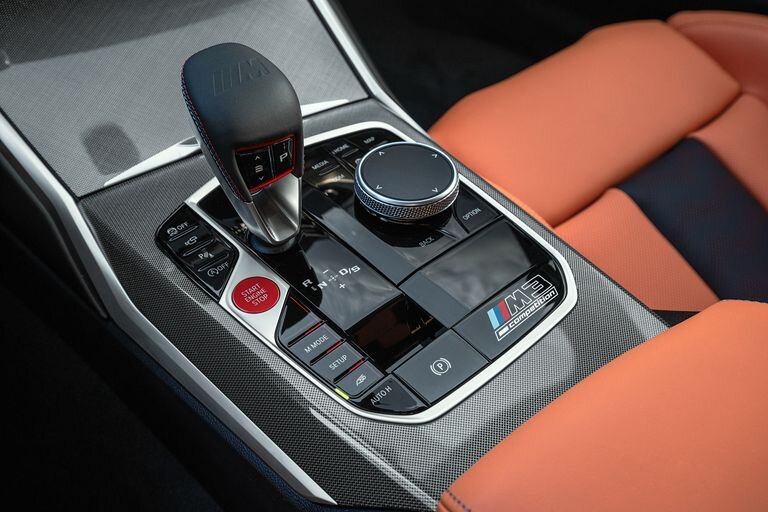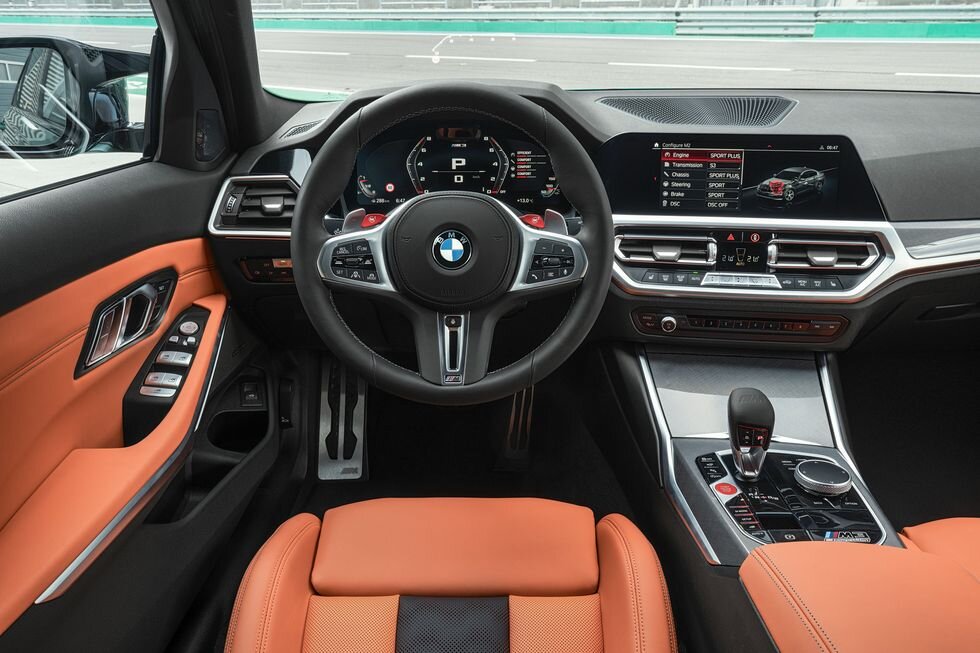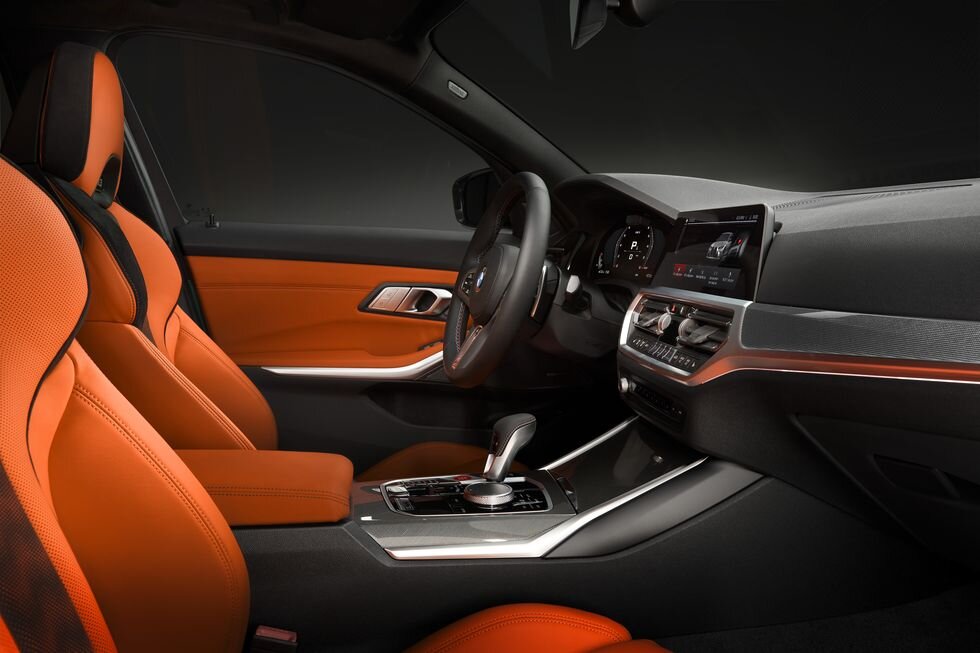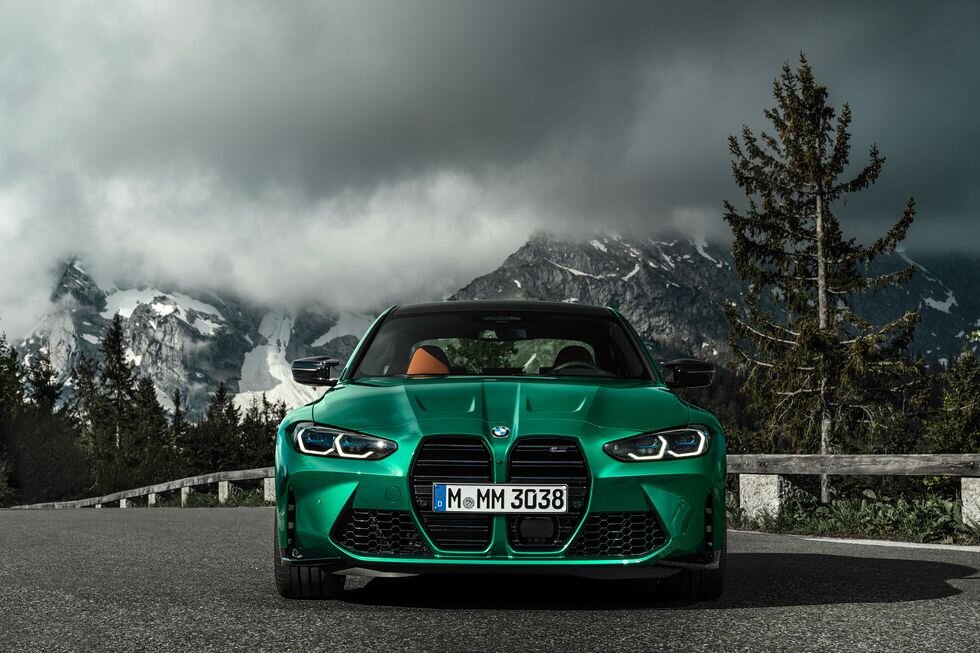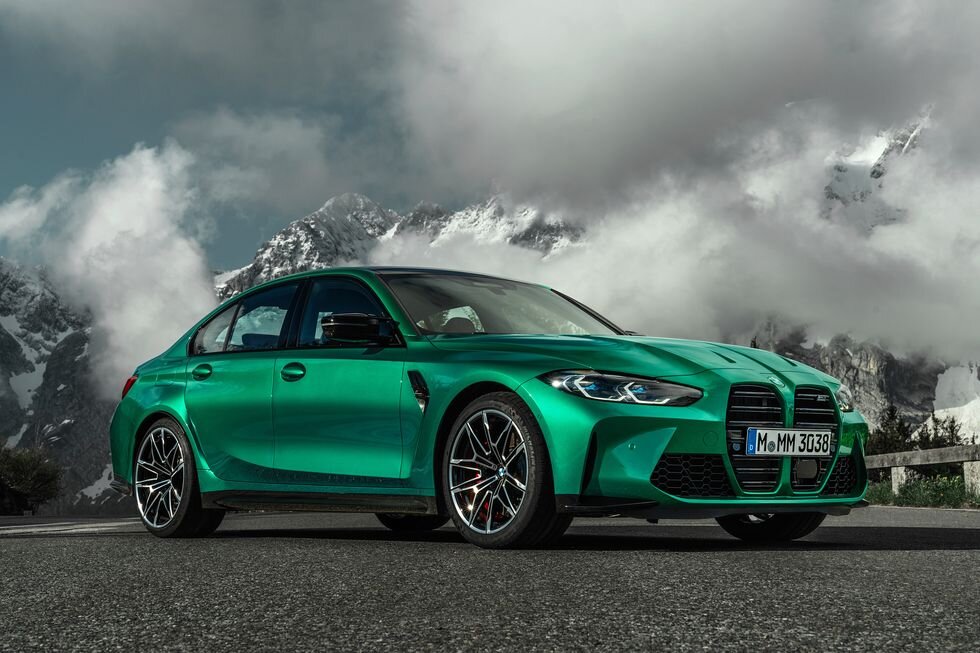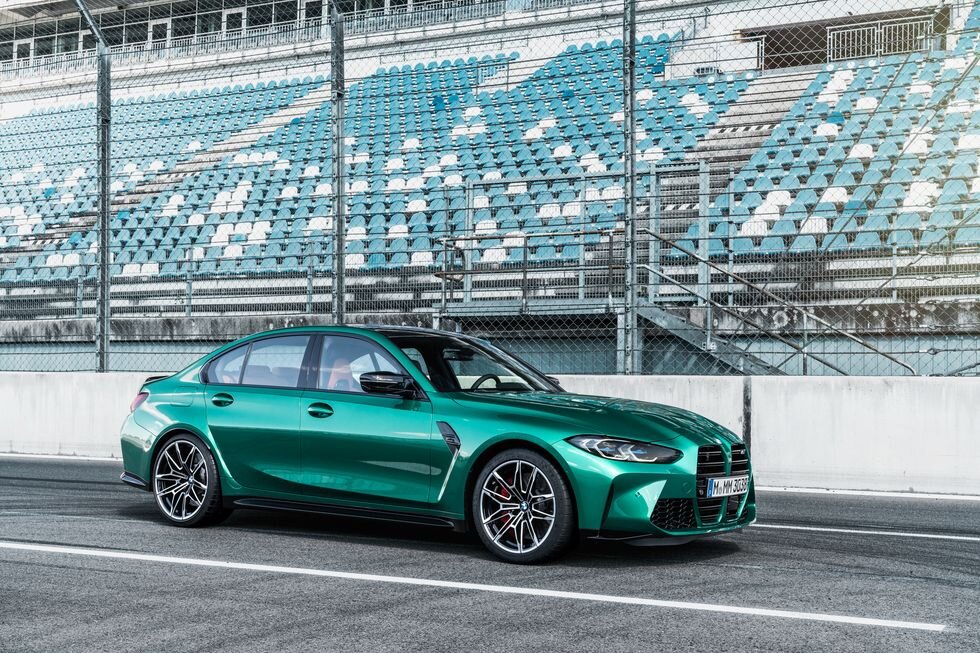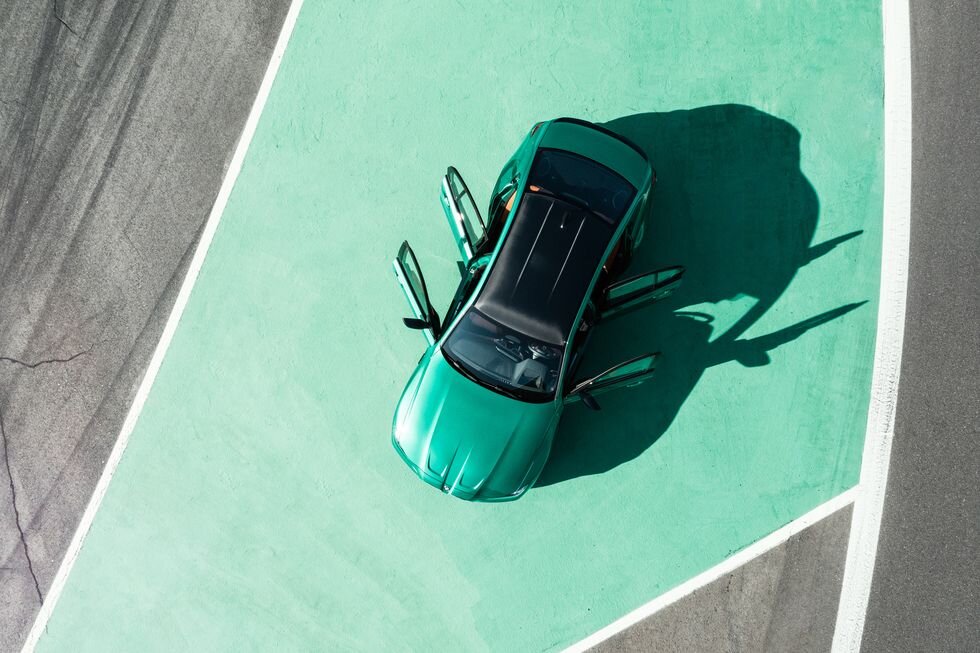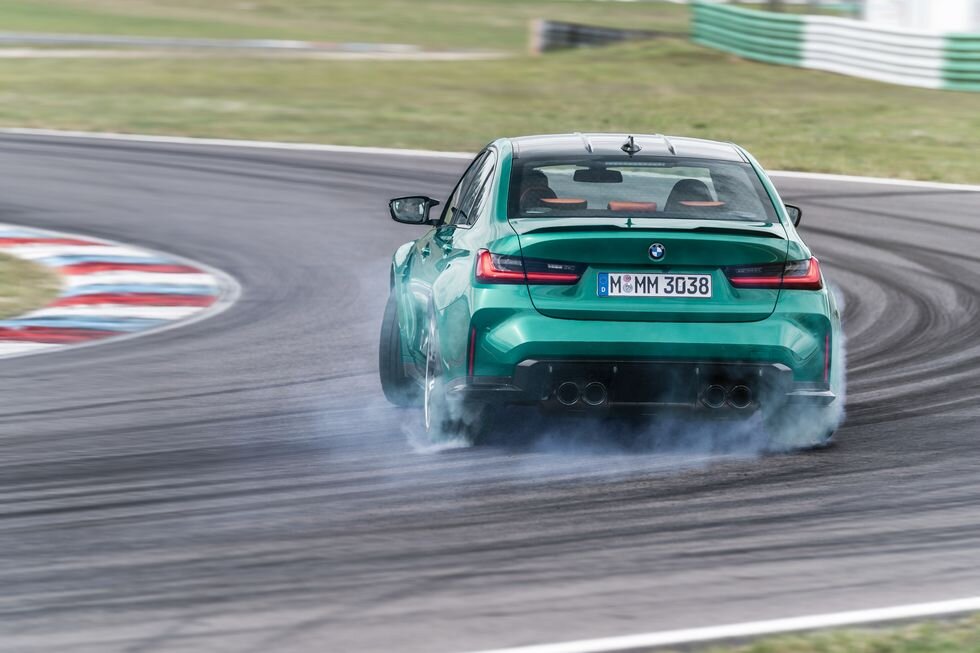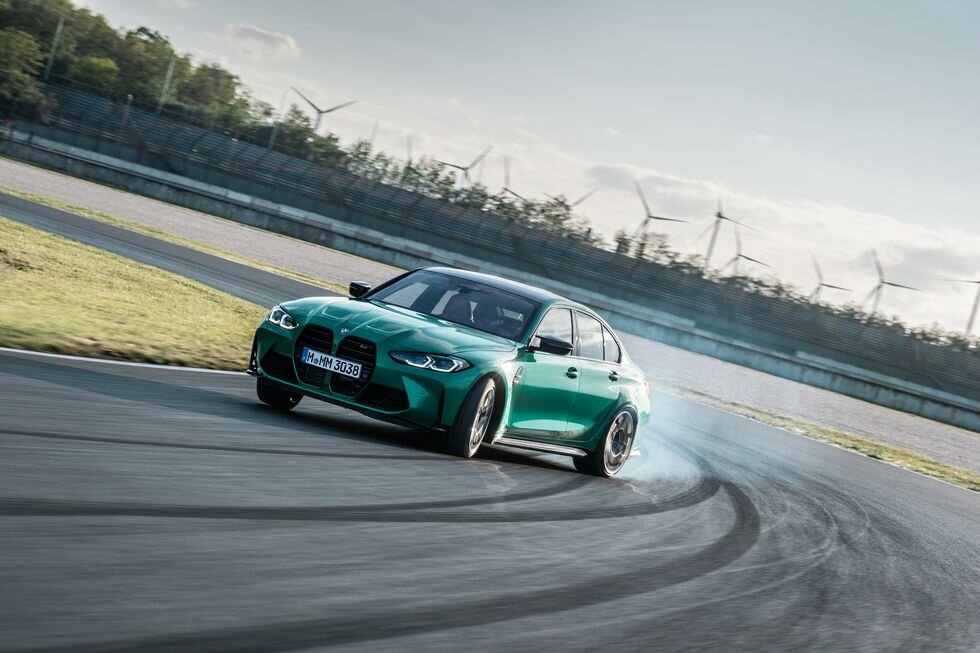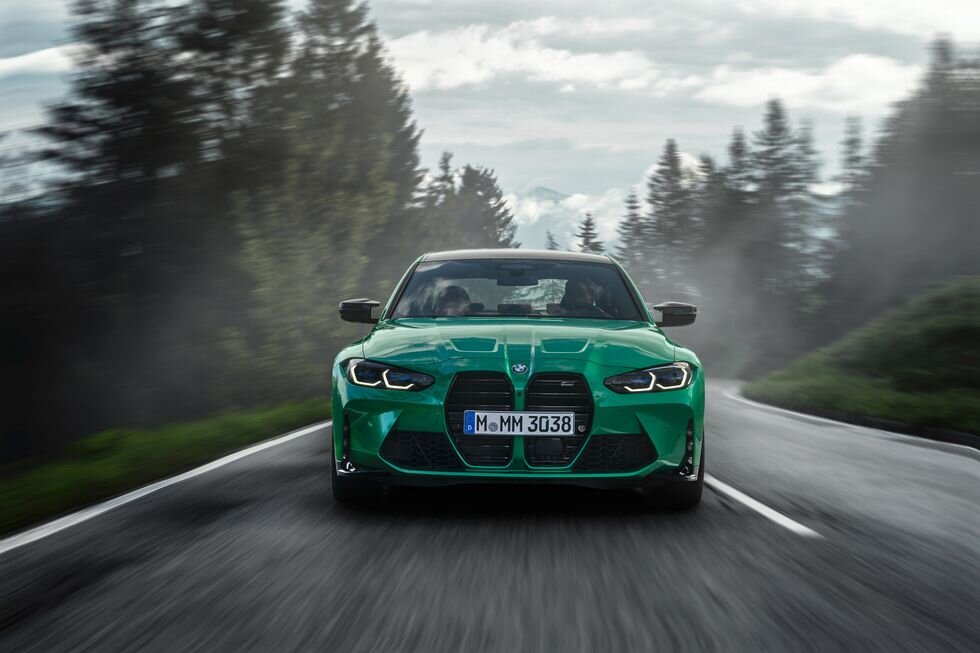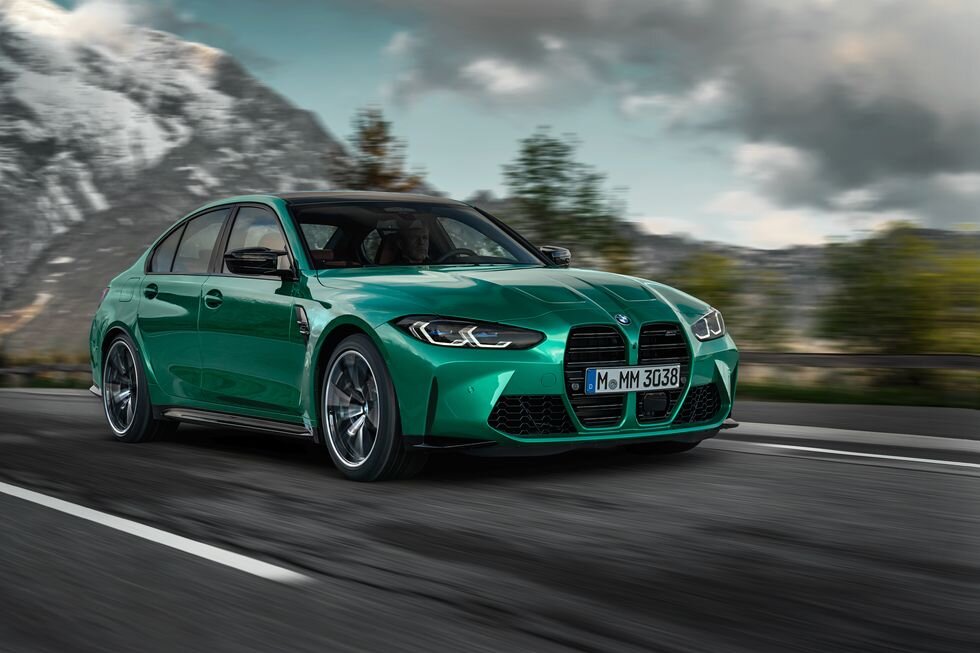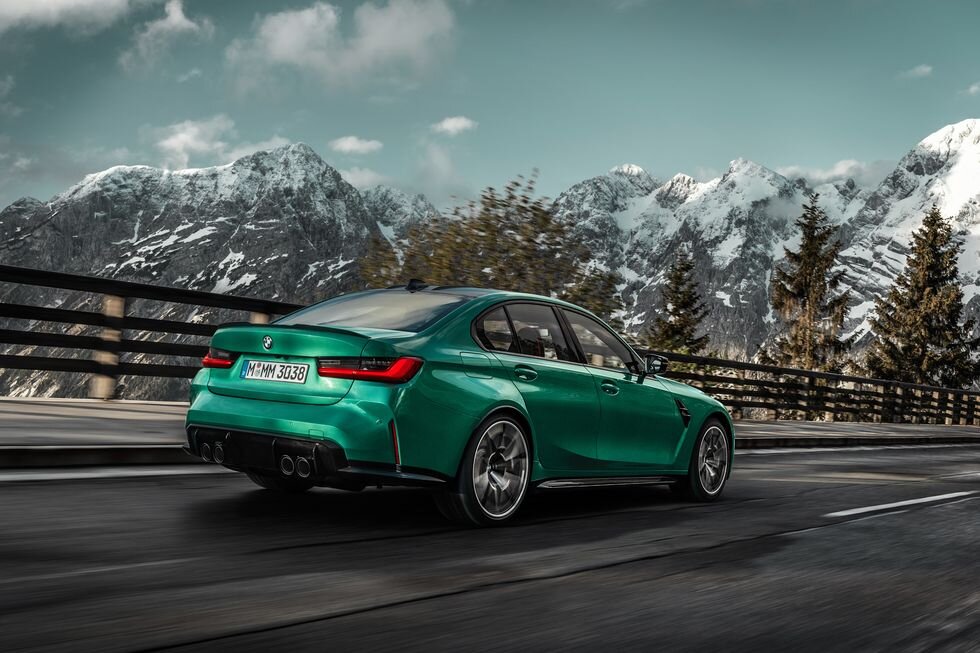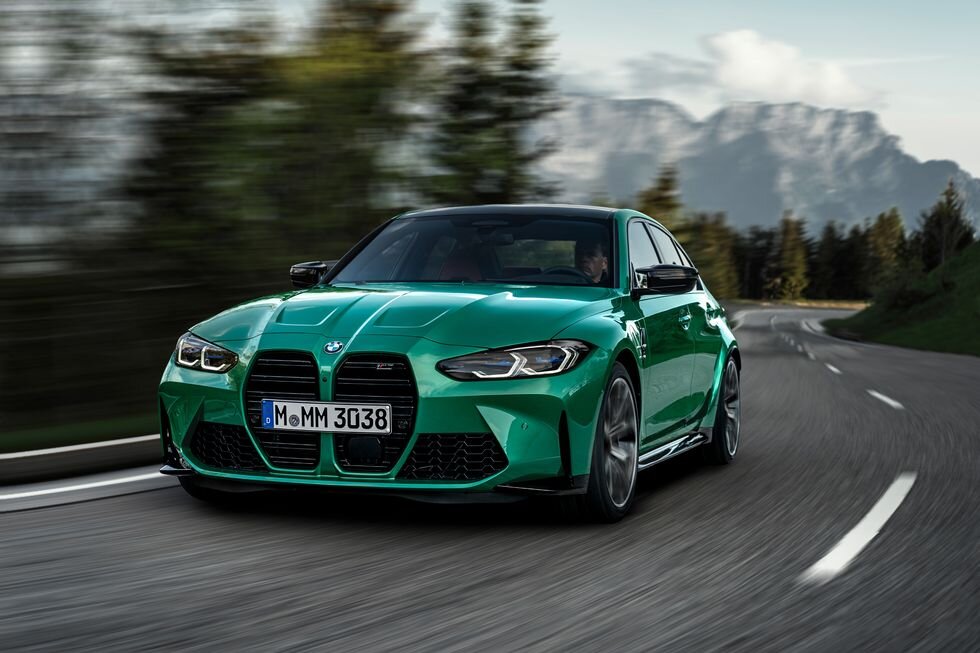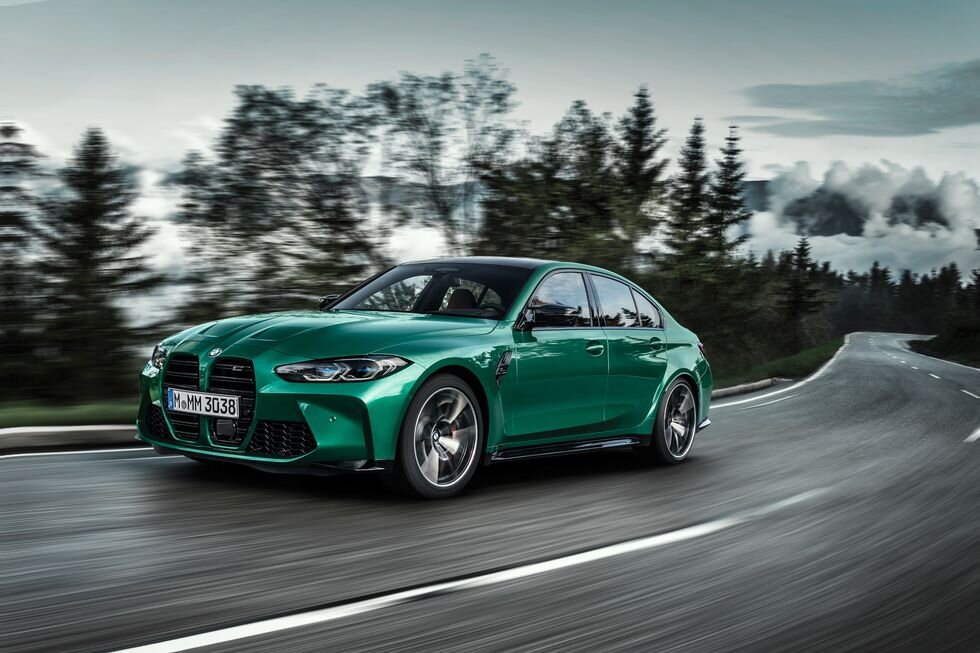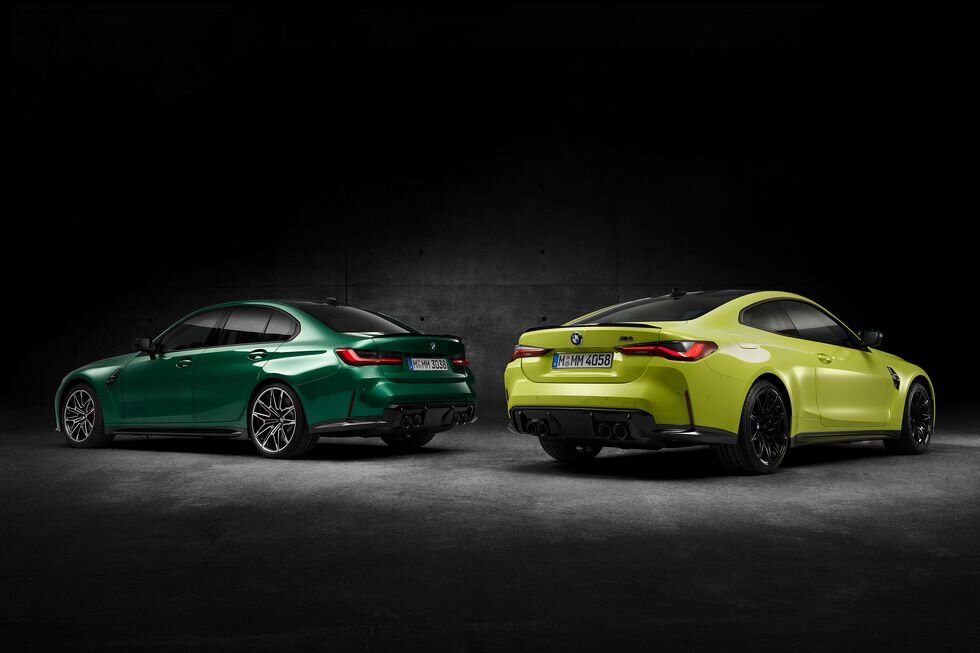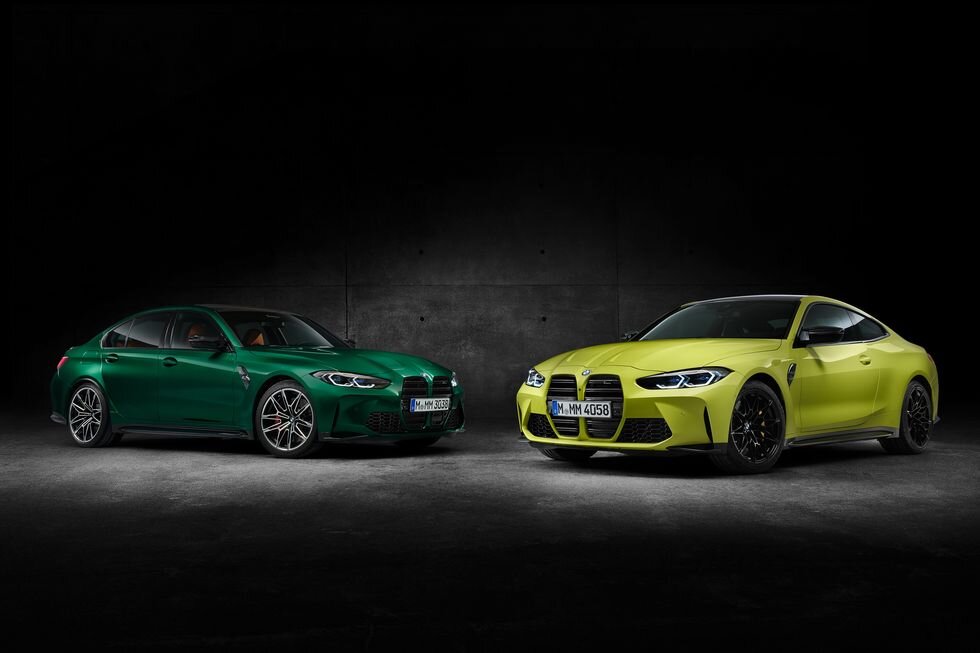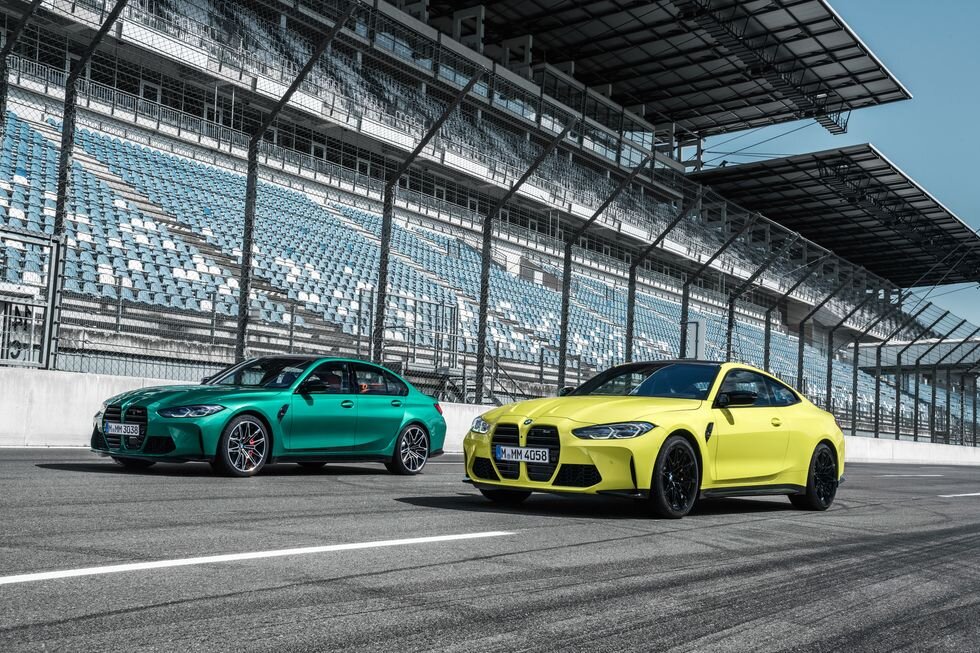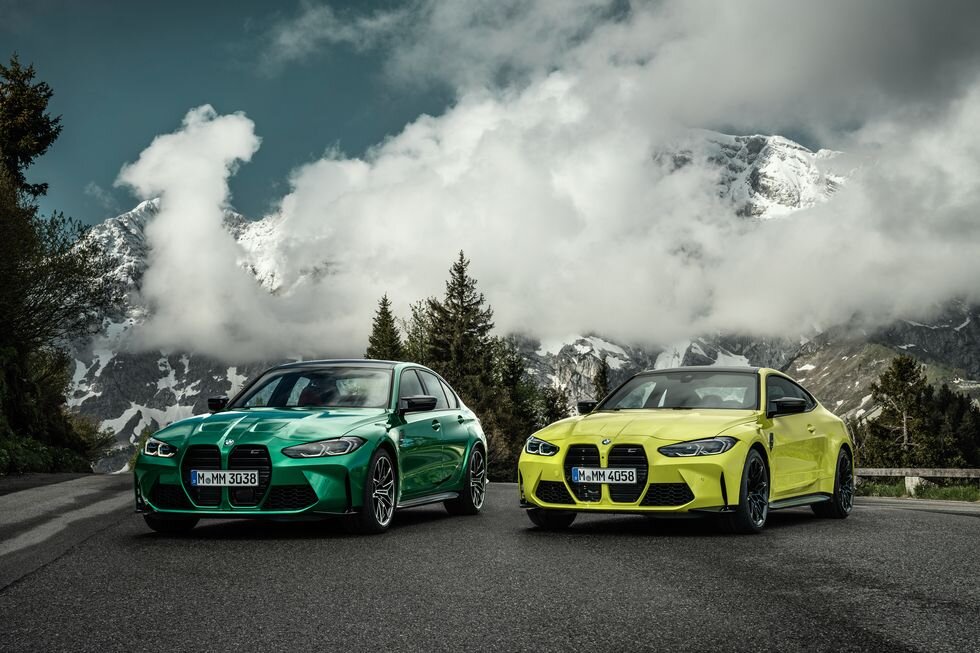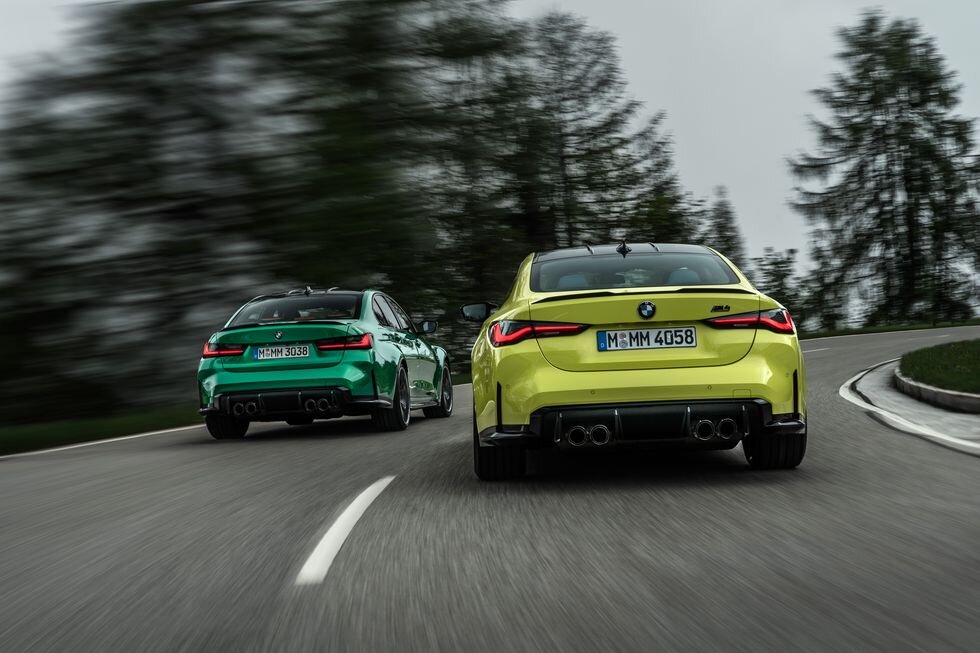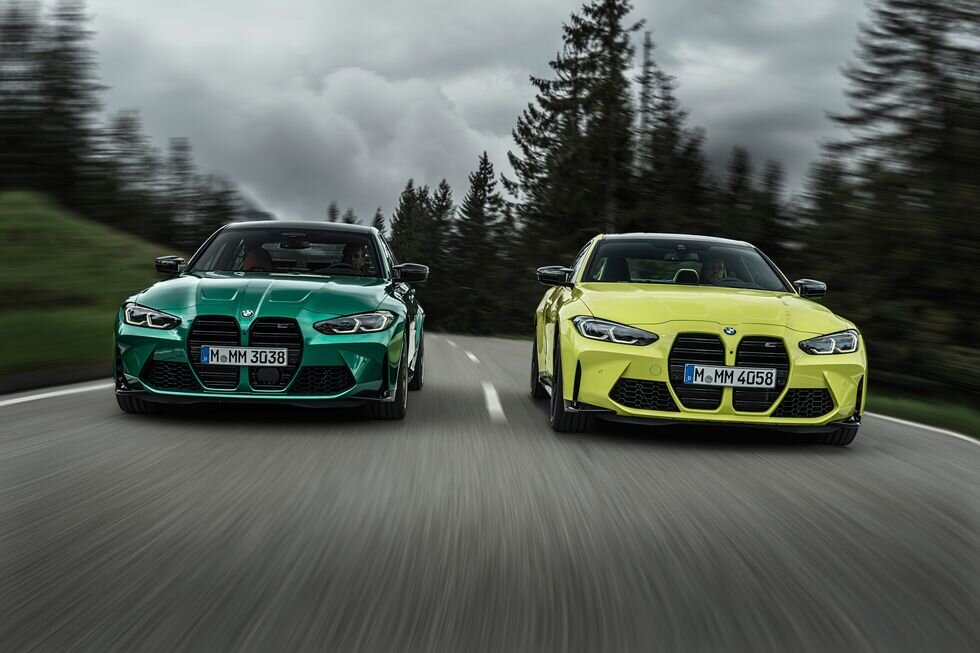2021 BMW M3 and M4 Sport Controversial Looks, Up to 503 HP
/The oversized grilles are in your face, but no complaints about the optional all-wheel drive with a rear-biased drift mode, or the six-speed manual on RWD models.
The 2021 BMW M3 and M4 have even bigger, more ostentatious kidney grilles, but the two cars from BMW's performance division are otherwise true to their existing personalities.
The M3 and M4 happily still come with the option of a six-speed manual transmission.
They'll square off against strong competitors including the Mercedes-AMG C63 and the Audi RS5 Sportback, and they'll start arriving at dealers next March.
If you are irked by the protruding nose of the new BMW 4-series, we have bad news for you: The vertical kidneys of the new M4 are even bigger and more prominent, and what's more, they carry over to the M3. This, however, should be by far the most controversial element of the new M3 and M4, because in every other respect, BMW's M performance division has stuck to the proven formula that has made the duo such a resounding success.
In fact, the engineers at M GmbH have listened very closely to customers and journalists. One of the results: Unlike every competitor, you can still get the M3 and the M4 with a six-speed manual transmission. And even better, it is possible to turn off the rev-match system that all too often interferes when you are having fun with the clutch and gearbox.
Of course, there is no such thing as unconditional bliss, and the drawback is that the manual transmission is tied to the lower of two power levels: the entry-level M3 and M4, which are powered by a 473-hp variation of the upgraded S58 twin-turbocharged 3.0-liter inline-six. The alternatives are the M3 Competition and its two-door sibling, the M4 Competition, which feature another power upgrade to a 503 horsepower and are solely available with an eight-speed automatic sourced from ZF. It is a quick-shifting unit that allows for automatic throttle blipping at downshifts and will select the lowest possible gear when the left paddle is held for an extended period of time.
Maximum power comes at 6250 rpm in both models, 950 rpm shy of the lofty 7200 rpm redline. Peak torque of 406 lb-ft is served up on a plateau from 2650 to 6130 rpm on the regular models, while the somewhat sharper Competition models produce 479 lb-ft from 2750 to 5500 rpm.
Both powertrains send the torque to the rear wheels, but BMW already announced an all-wheel-drive variant that will be offered solely on the automatic-only Competition models. Taking a page from the top-level M models, the all-wheel drive system will be rear-biased, and it will be possible to switch off the front axle entirely for some unfiltered drift action. Rear-axle torque is harnessed by a electronically controlled differential. When the optional M Drive Professional system is specified, axle slip can be adjusted on a range of a full 10 stages.
A 155-mph governor is standard, but it can be raised to 180 mph (in case speed limits are ever lifted). The sprint from zero to 60 mph takes a claimed 4.1 seconds in the regular models and drops to 3.8 seconds in the Competition models.
Engineering geeks will relish features such as the S58's closed-deck block and a forged crankshaft. The engine, first launched on the X3 M and X4 M, features variable valve timing and lift. The automatic transmission needs and gets a separate cooler.
Compared to the regular 3- and 4-series, the M3 and M4 receive a different electrically assisted power steering system with a variable ratio, and the body and chassis are significantly stiffened. Both versions feature different tire and wheel sizes: 275/40ZR-18 front and 285/35ZR-19 rear for the base model and 275/35ZR-19 front and 285/30ZR-20 rear for the Competition model.
Visually, there won't be any mistaking the M3 and M4 for their more pedestrian siblings, and that is not just a function of those nostrils. The M3, in particular, looks far more aggressive than the 3-series, thanks to a number of wide and angular body parts and a large rear diffuser. Those elements spread out a bit more elegantly on the M4, but we like the dominant demeanor of the M3.
Inside, there are M-specific graphics and extra buttons that allow the shortcut to preferred, pre-configurable settings. The fat steering wheel is grippy, and the seats offer a lot of lateral support in fast corners. Curiously, there is no armrest on the rear bench, but these are driver's cars, aren't they?
We have driven an entry-level M3 at a late prototype stage and can attest to its superior performance. If you like to shift yourself, you won't have this much fun in any other four-door sedan.
Given its level of performance, the duo is very competitively priced: The M3 will set you back $70,895, and the M4 starts at $72,795, with the Competition package offered at a modest extra $2900. They will be launched in March 2021, and the xDrive all-wheel-drive Competition models will come next summer.
